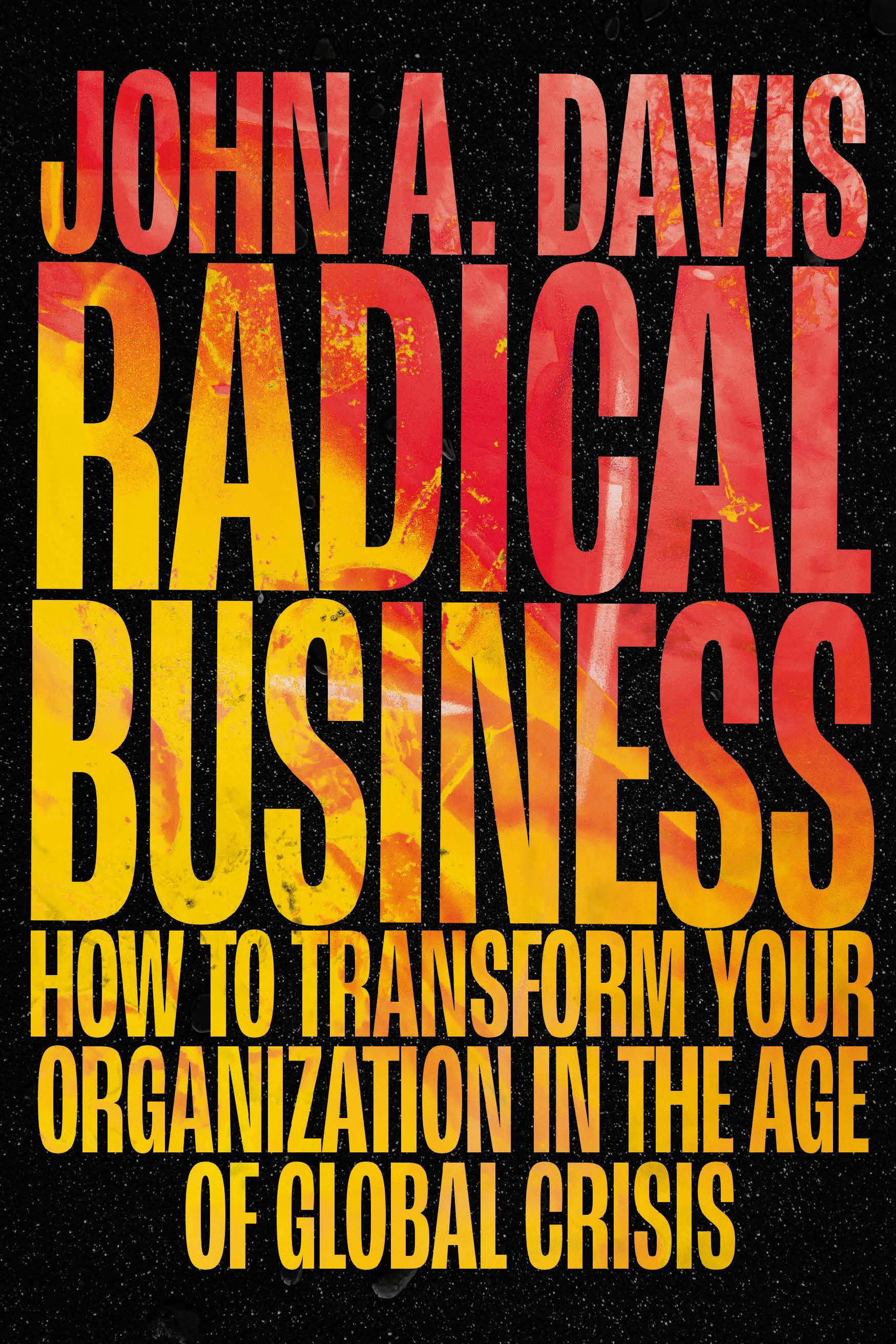
Running a company in today’s world is anything but easy as leaders face a perpetually unsteady state that impacts their decision-making. Courageously pursuing positive ideas will provide the ballast needed to navigate today’s unsteady waters.
We are amid multiple crises: a horrific war in Ukraine; a deteriorating refugee crisis worldwide; resurging coronavirus pandemic; increasing inflation; unresolved global supply chain problems; toxic political conditions; growing racial strife; worsening economic inequality; and the existential threat from climate change. Running a company in today’s world is anything but easy as leaders face a perpetually unsteady state that impacts their decision-making. In this article, I highlight six of twelve areas of excellence from my research that ‘force-for-good’ organisations and leaders pursue:
Source: Radical Business ©2022 by John A Davis
They create meaning by developing…

A compelling aspiration
Your company’s desire to achieve something great is critical to your success. In the past, having a recognised, best-in-class product might have been enough to warrant that greatness designation. But that is no longer the case. Greatness now comes from positively impacting society. That might sound easy, but if your product worsens Scope 1, 2, and 3 carbon emissions, then you have got work to do to improve. Doconomy, a Swedish impact-tech firm with the aspiration to future-proof life on Earth, has developed a lifestyle calculator that helps consumers assess the environmental impact of their decisions, an innovative way to educate consumers and businesses about how to change their respective behaviours.1 Ask these questions:

A culture that feels more like a cause
Jobs are jobs. But when the workplace feels like a special cause, then it takes on a deeper meaning and a job becomes a call to action. There is a sense of esprit de corps. BetterUp found that job performance improves 56 per cent when employees feel a strong sense of workplace belonging and they are 167 per cent more likely to recommend their company to others. Conversely, performance drops 25 per cent if a person feels excluded.2 Excoriating people for a mistake or missed target creates cultural toxicity. The conclusion is clear: foster a culture where people believe their work matters, is supportive, and contributes to the greater good. Questions include:
They measure value through…
A keen focus on building reputational value
Force-for-good companies are devoted to building genuine trust with the market.
This is not a marketing communications exercise. Instead, it reflects your company’s ethical and moral compass and is the result of actions that demonstrate employees live by its values and deliver on promises. Transparency is a vital attribute, including admitting when things go wrong, which helps reinforce your company’s reputation.
A RepTrak™ survey showed that reputations improved during the pandemic when companies showed care for their own employees and demonstrated support for social movements. The pharmaceuticals, food & beverages, and transport sectors had the strongest reputation gains. The biggest declines were in airlines, hospitality, and government.3 Part of the US government’s reputation decline was due to the Trump Administration’s poor handling of the Covid-19 pandemic.4 Questions include:
A stakeholder orientation
The most successful force-for-good organisations spend time getting to know their stakeholders and understanding their perspectives. 87 per cent of the public view stakeholders as more critical to an organisation’s success7 than shareholders. Salesforce.com’s founder, Marc Beniof, said “I default to this concept of stakeholder theory. CEOs have to decide: are they advocating for their shareholders or advocating for their stakeholders? If you’re only focused on shareholders, then you’ve got a very different situation on your hands. And in our case, we are very much focused on stakeholder theory.”8 The company is well known for its 1/1/1 model in which each office devotes 1 per cent of its profits, 1 per cent of equity, and 1 per cent of employee time to the local community. For interested readers, check out Salesforce.com’s annual Stakeholder Impact Report9 . Questions include:
A responsible-solutions bias
Link stakeholder understanding to impactful solutions. PepsiCo’s Sustainable Farming and Regenerative Agriculture Programs help farmers implement state-of-the-art farming practices that improve soil health and enhance biodiversity, significantly reducing the harm caused by obsolete farming practices that depleted soils of critical nutrients and caused environmental damage from deforestation.10 Research from NYU’s Stern Center for Sustainable Business found that sustainable products have a nearly 40 per cent price premium over non-sustainably marketed ones, so these investments reap financial rewards.11 Focus on these questions:
Businesses have a remarkable opportunity to provide the ballast needed to navigate today’s unsteady waters. That ballast does not come from rigid conformity to outdated practices; it comes from businesses and leaders that courageously pursue positive new ways to contribute to today’s turbulent world.
Log In or become an AIMA member to read more articles
